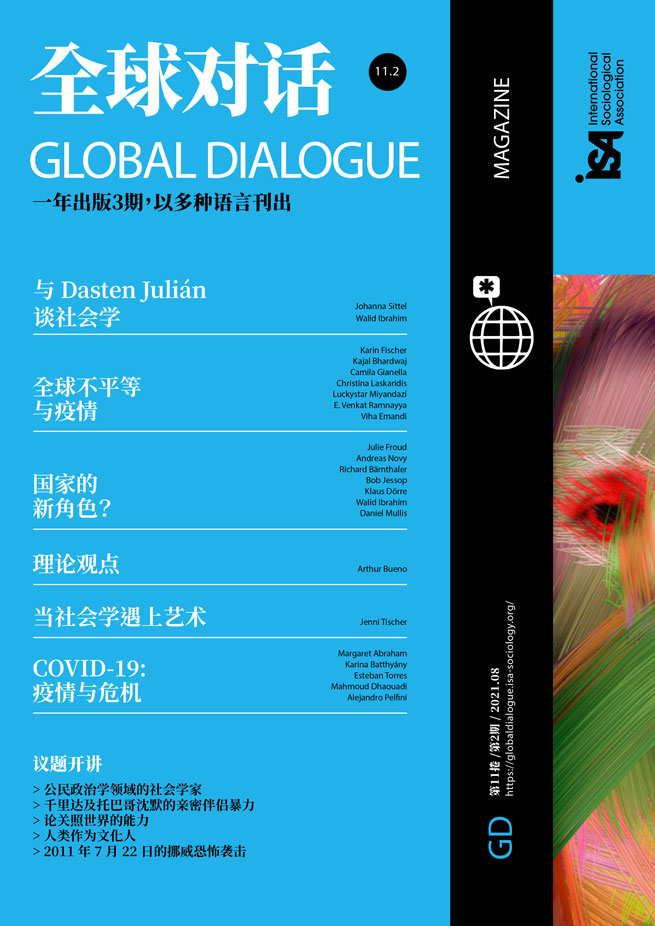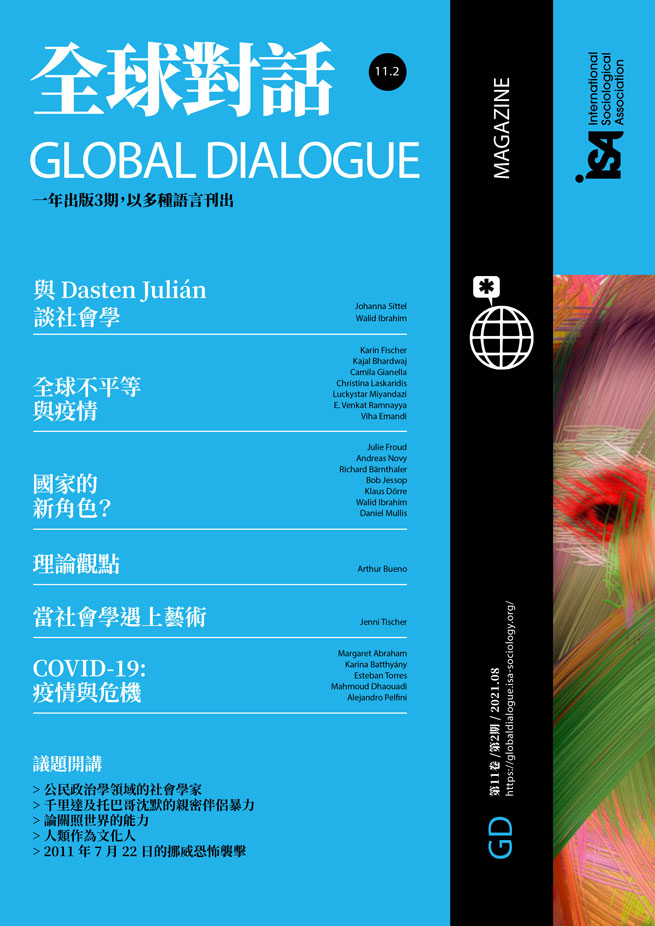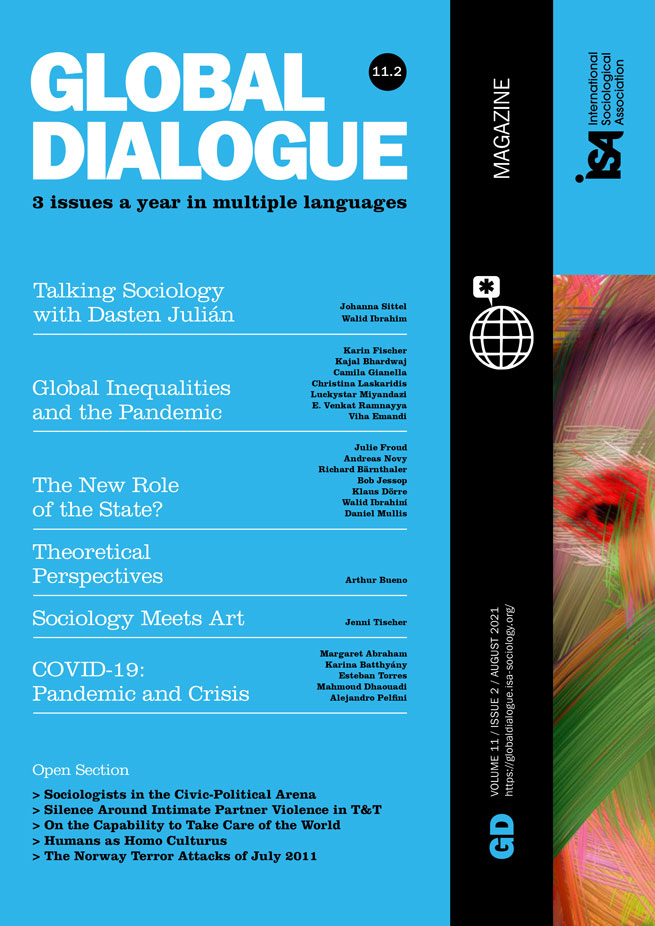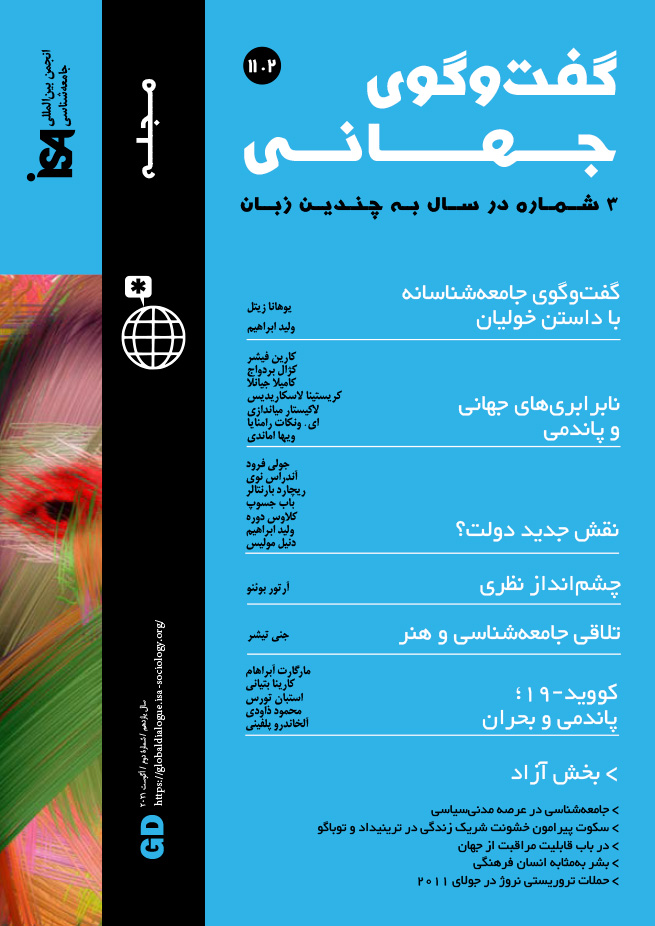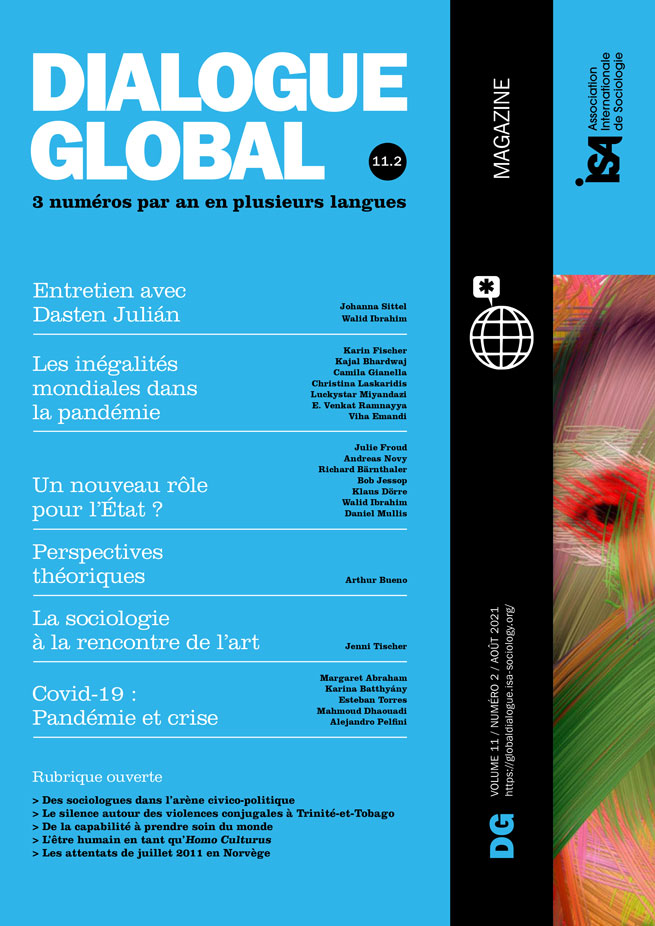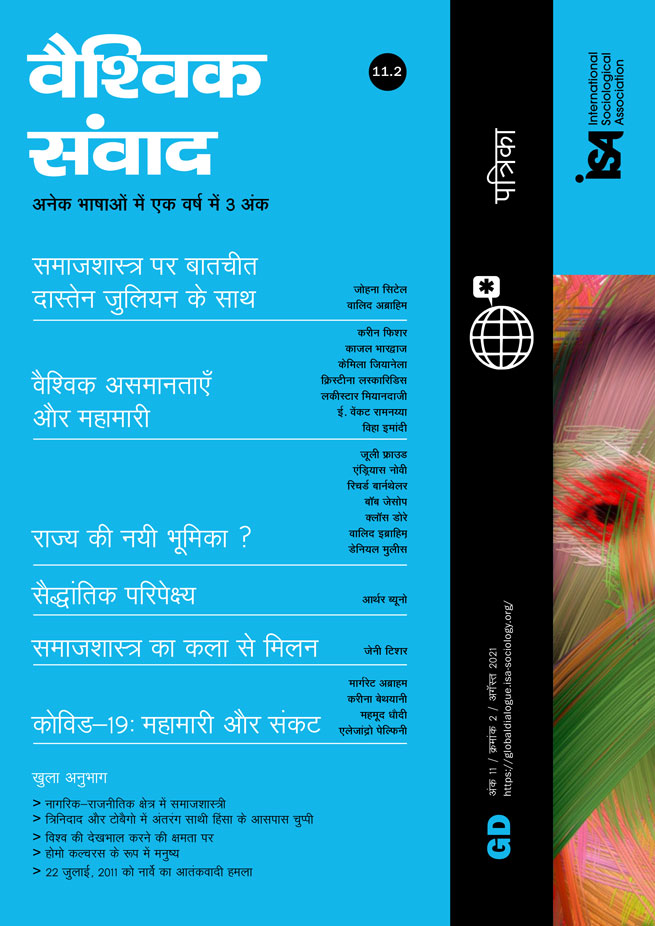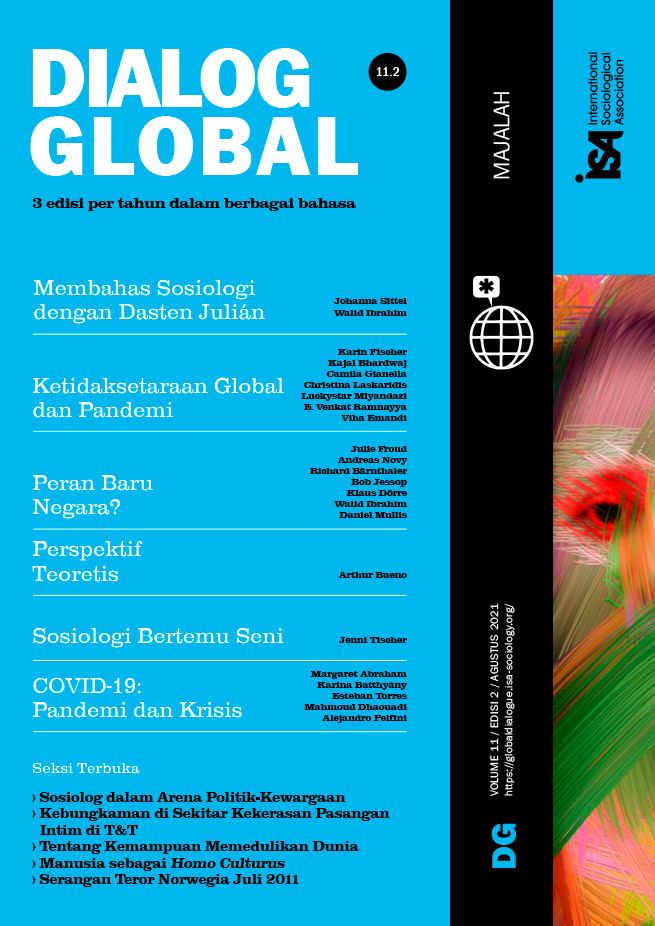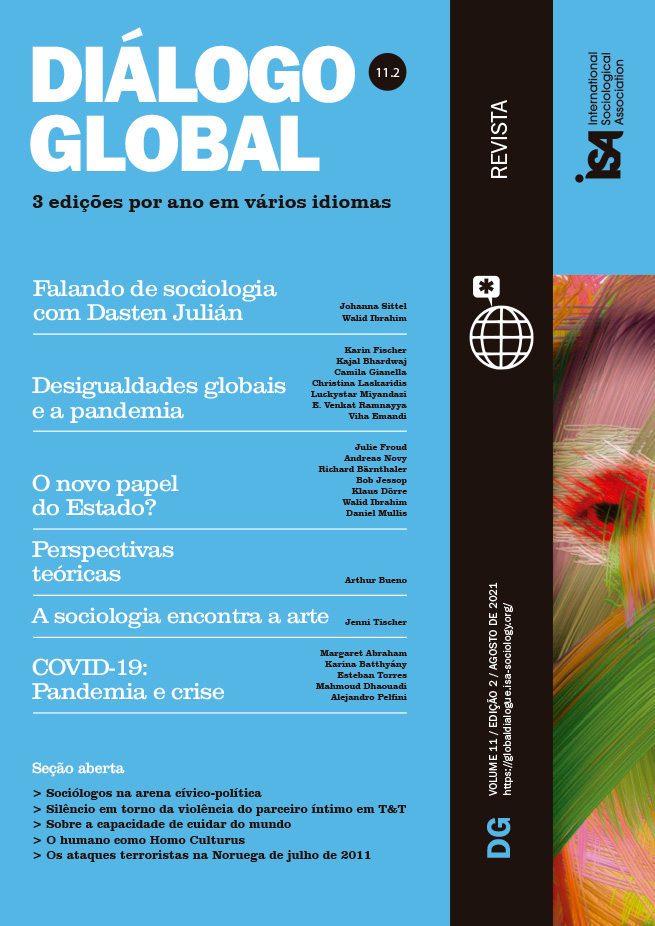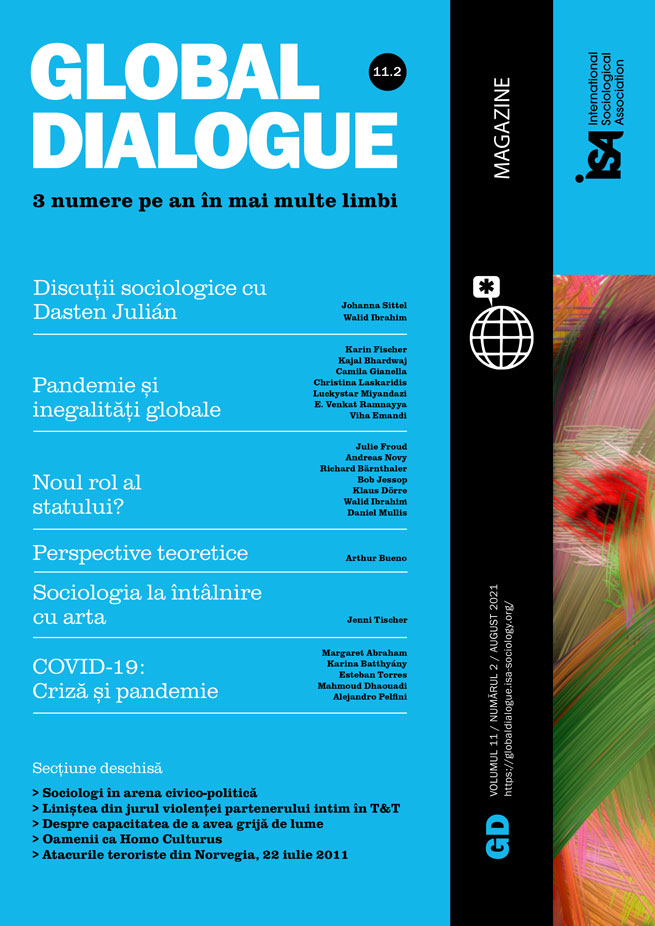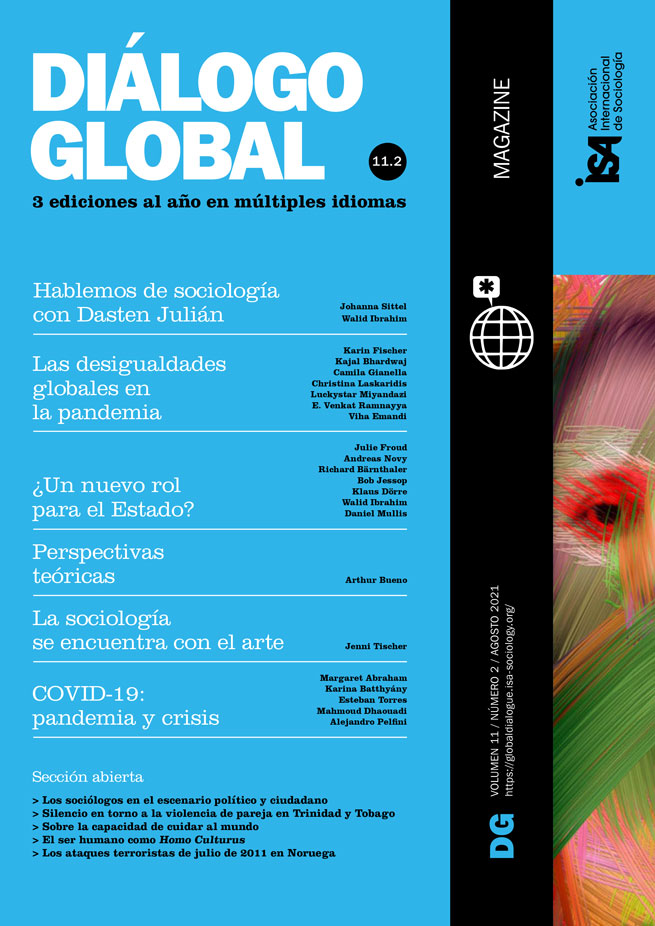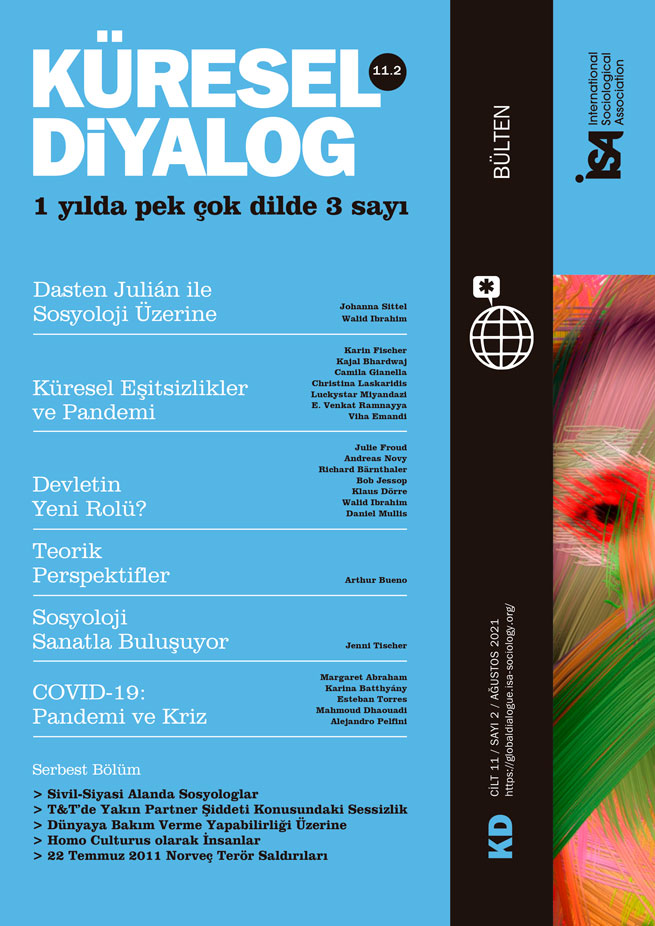That we are currently living in times of profound turmoil is widely acknowledged. The question no longer is whether profound changes will take place in the twenty-first century, but how this transformation will happen – in a chaotic way, as we are currently experiencing in dealing with the pandemic, or collectively shaped. The latter depends on two prerequisites: re-thinking economics, and strengthening public and democratic institutions.
The limits of XXth-century economic thought
Over the last decades, market-liberal thought, already dominant in the nineteenth century, has experienced a renaissance. Often criticized as neoliberalism, it has permeated political thinking and acting far beyond right-wing policy-making. The strengths of the market in ramping up (eco-)efficiency and optimizing the allocation of scarce resources have become a dogma, disciplining the mainstream in the EU and the US. Optimizing markets, however, will not suffice to keep us within planetary boundaries – not only because green growth (which, in the absence of absolute decoupling between economic growth and environmental pressure, is in fact not green at all) tends to offset efficiency gains with increased consumption but also because market liberalism ignores predominant unsustainable routines, practices, and habits. It holds an almost religious belief in the power of well-informed, rational consumers to “solve” the climate crisis through individual market choices. This priority given to market solutions not only reinforces uneven access to consumption, it is also a threat to democracy. In market liberalism, the state is neither weak nor restricted to laissez-faire, but has a strong mandate to enforce contracts and protect private property rights. However, in a world in which property rights are concentrated within business corporations, the market-liberal state has engendered new, undemocratic, and highly unequal power structures. Multinational corporations have become global rule- and decision-makers, able to externalize costs onto society and the environment and translate this externalization into privatized shareholder value.
After World War II, both in the Global North and the developmental states in the Global South, a “post-war consensus” based on welfare capitalism emerged. Infrastructure provisioning was considered a foundational task for public authorities: from the access to health and education to the significant municipalization or nationalization of the provisioning of energy, housing, and mobility. A larger repertoire of instruments – macroeconomic interventions, limits to the scope of markets, and redistributive measures – resulted in plural economic institutions, enabling prosperity in Western Europe and North America as well as national development in the Global South. While at the end of the twentieth century this economic consensus suffered severe setbacks in academia and policy-making, it regained influence in the aftermath of the 2008 Great Financial Crisis. The twenty-first century version of welfare capitalism reflects a pragmatic approach to social-ecological transformation, promoting ecological modernization and acknowledging a more active role for the state in innovation and industrial policies, but ignores how profit and growth imperatives and consumerism structure the very ways in which we produce and live. As a consequence, inequality remains high and the climate catastrophe escalates. What is more, the effectiveness of the territorially-organized “welfare and regulatory state” has been weakened by an increasingly de-territorialized economy, enabling multinational corporations to avoid national legislation and concentrate wealth.
An emerging framework
Given the escalating crises, an incipient third stream of economic thought has emerged. It takes up insights from Marx, Keynes, Braudel, feminist economics, and the Foundational Economy Collective to distinguish between: (i) the foundational economic zones of everyday activities, including existential and local provisioning as well as non-paid care work; (ii) the value-making market economy, including non-essential local provision and export-oriented activities; and (iii) the value-taking rentier economy. Karl Polanyi’s understanding of the economy as a system that organizes livelihoods is best suited to face the challenges of social-ecological transformation, highlighting the need to expand and strengthen the foundational economy (top priority) as well as non-essential local provision (second priority), convert the export-oriented market economy, and shrink the rentier economy.
While acknowledging that a good life for all within planetary boundaries can only be actualized through a transition to post-capitalist modes of production and living, this approach lacks a strategy on how to introduce the necessary changes in a democratic way. Some proponents tend to reject the state and privilege grassroots movements and civil society activism, thereby reinforcing market-liberal anti-statism and political fatalism and conflating mainstream post-political policymaking of the last decades with state agency in general. The rise of a range of authoritarian governments, however, demonstrates the potential power of state institutions. While none of them, whether in contemporary Brazil, India, or China are role models, they show the potentialities inherent in the state as a bordered jurisdictional entity with territorialized sovereignty: be it the municipal-state, the nation-state or the European-state. Ignoring the potential that lies in states’ monopolies over legitimate rule-making is not only naive and dangerous, but, above all, remains trapped in niche-games at the expense of potential counter-hegemonic projects.
The need for non-capitalist state institutions
Effective strategies to strengthen a future-fit economy require to pursue interconnected territorialized forms of self-determination by empowering a diversity of entangled, but proper policy spaces via selective economic deglobalization – e.g. the city, region, nation, and beyond. States, governing a territory via public and democratic institutions, must neither be reduced to the nation-state, nor to centralized bureaucracies. Innovative state forms will have to be more decentralized, empowering and protecting intermediary institutions as well as self-managed non-commodified spheres of working and living. However, a critical political economy has stressed the limits of such progressive state agency in capitalism, insisting that the state in capitalism is a capitalist state.
We agree that public and democratic state institutions can only flourish in economic systems beyond capitalism. However, as non-capitalist zones have always existed within capitalism, non-capitalist state institutions can exist within capitalism too: be it cooperatives, municipal companies, or public pension systems. And as capitalism depends on foundational economic zones (especially care and infrastructures), non-capitalist state institutions sustain the legitimacy and effectiveness of capitalism. Because capitalism depends on its own negation, state agency can strengthen foundational economic zones that enable a civilized life for all inhabitants. Inclusive access to affordable collective provisioning systems (care, health, education, housing, mobility) can be combined with the exclusion of unsustainable options (e.g., a ban on short-distance flights) and the steering of investments into sustainable economic activities (e.g., through subsidies, direct investment, taxation, social licenses, re-training programs) to ensure social-ecological universalizability. In the short-run, this is a viable strategy to move beyond neoliberalism, strengthening green, non-capitalist state forms within capitalism.
In the long run, however, a capitalist mode of production remains incompatible with a good life for all within planetary boundaries. Hence, to move beyond capitalism, new forms of the state must evolve around the flourishing of decommodified spheres of life beyond their functionality for the reproduction of capital. This could constitute transformed civil society-state relationships in which investments in as well as the operation of infrastructure provisioning become more socialized and dependency on labor market income is reduced. Promoting well-being would result in more free time instead of increased wages, accessing public goods would be favored over possessing private ones, reducing the costs of living (for e.g., affordable public infrastructure and housing) would be prioritized over raising purchasing power.
Andreas Novy, Vienna University of Economics and Business, Austria <Andreas.novy@wu.ac.at>
Richard Bärnthaler, Vienna University of Economics and Business, Austria <richard.baernthaler@wu.ac.at>






